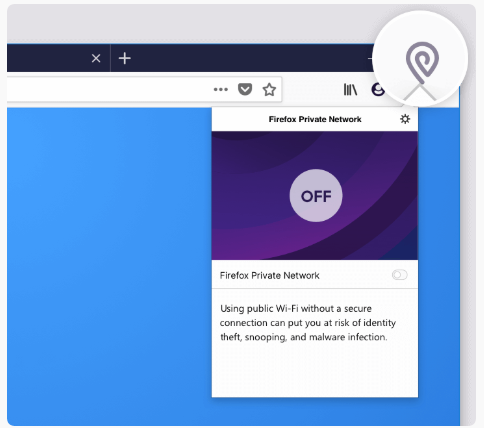Yesterday, Mozilla relaunched its Test Pilot Program for the second time, alongside the release of Firefox Private Network Beta. The Test Pilot Program provides Firefox users with a way to try out its newest features and share their feedback with Mozilla.
Mozilla first introduced the Test Pilot Program as an add-on for Firefox 3.5 in 2009 and relaunched it in 2016. However, in January this year, it decided to close this program in the process of evolving its “approach to experimentation even further.”
While the name is the same, the difference is that the features you will get to try now will be much more stable. Explaining the difference between this iteration of Test Pilot Program and the previous ones, the team wrote in the announcement, “The difference with the newly relaunched Test Pilot program is that these products and services may be outside the Firefox browser, and will be far more polished, and just one step shy of general public release.”
Firefox Private Network Beta
The first project available for beta testing under this iteration of the Test Pilot Program is Firefox Private Network. It is currently free and available to Firefox for desktop users in the United States only.
Firefox Private Network is an opt-in, privacy-focused feature that gives users access to a private network when they are connected to a free and open Wi-Fi. It will encrypt the web addresses you visit and the data you share. Your data will be sent through a proxy service by Mozilla’s partner, Cloudflare. It will also mask your IP address to protect you from third-party trackers around the web.

Source: Mozilla
Read also: Firefox 69 allows default blocking of third-party tracking cookies and cryptomining for all users
Users have already started testing the feature. A user on Hacker News shared, “I just got done testing this, it assigns a U.S. IPv6 address and uses the Cloudflare Warp network. My tests showed a very stable download speed of 150.3 Mbps and an upload speed of 13.8 Mbps with a latency of 31ms.”
Another user commented, “I quite like the fact that once this goes mainstream, it’d help limit surveillance and bypass censorship on the web in one fell swoop without having to install or trust 3p other than the implicit trust in Mozilla and its partners (in this case, Cloudflare). Knowing Cloudflare, I’m sure this proxy is as much abt speed and latency as privacy and security.”
Some users were also skeptical about the use of Cloudflare in this feature. “As much as I like the idea of baking better privacy tools into the browser, it’s hard for me to get enthusiastic about the idea of making Cloudflare even more of an official man-in-the-middle for all network traffic than they already are,” a user added.
Others also recommended to try Tor proxy instead, “I’d like to point out though, that, one could run a Tor proxy (it also has a VPN mode) on their phones [0] today to work around censorship and surveillance; anonymity is a bit tricky over tor-as-a-proxy. The speeds over Tor are decent and nothing you can’t tolerate whilst casual web browsing. It is probably going to be free forever unlike Firefox’s private network.”
Read also: The Tor Project on browser fingerprinting and how it is taking a stand against it
Read Mozilla’s official announcement to know more in detail.
Other news in web development
GitHub updates to Rails 6.0 with an incremental approach
Wasmer’s first Postgres extension to run WebAssembly is here!










![How to create sales analysis app in Qlik Sense using DAR method [Tutorial] Financial and Technical Data Analysis Graph Showing Search Findings](https://hub.packtpub.com/wp-content/uploads/2018/08/iStock-877278574-218x150.jpg)


